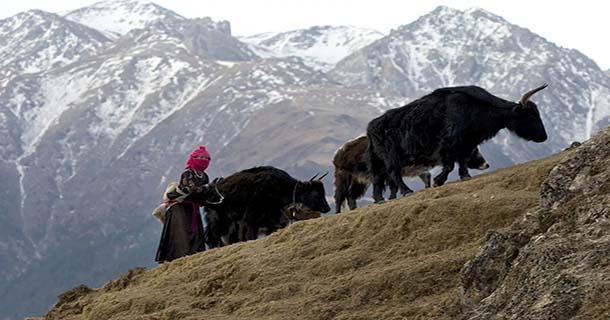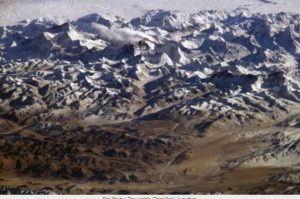Climate Chaos Puts Tibet and its Nomads at Grave Risk
By Sarah Weber
A special report on the Climate Emergency by the United Nations Intergovernmental Panel for Climate Change (IPPC) has highlighted the increased risk posed to Tibet as the “Third Pole”, a climate change epicenter. The report Climate Change and the Land is a product of 107 experts from 52 different countries. The report carried out extensive research on climate change and its effects on land, together with the livelihood and well-being of human beings, as well as biodiversity at large. It focuses on the global situation but comes to an alarming conclusion for Tibet in particular.
The report, published on August 8, widely covers a range of topics: climate change; desertification; land degradation; sustainable land management; food security; and greenhouse gas fluxes in land-based ecosystems. Experts see Tibet as a climate change epicenter: the Tibetan plateau, as the largest reservoir of the freshwater outside of the North and South Poles, as well as the source of the eight largest river systems in the world, is dubbed the earth’s Third Pole. The plateau is warming twice as fast as the rest of the world, which causes the melting of the glaciers and permafrost. Since the glacial sources of Asia’s great rivers are melting fast, rivers and lakes are rising and overflowing, speeding up the soil erosion process, thereby causing floods, landslides and major damage to land and people as well as an increase in bare ground cover. Moreover, the accelerated melting of the glaciers and permafrost contribute to global warming and more extreme weather conditions such as snowstorms and heavy rain inside of Tibet. The extreme weather phenomena are causing large scale loss of livestock and endangering wild animals such as blue sheep; white-lipped deer; Tibetan gazelles; wild yaks and various species of birds. The report concludes that extreme weather conditions are projected to grow in intensity and frequency.
Additionally, the report gives special attention to land degradation on the Tibetan plateau, since food security is strongly linked to land tenure. Climate change and soil erosion impact rang lands and therefore heighten the vulnerability of pastoral systems. China’s policy of settlement, resettlement, communally owned rangeland and fencing off of pastoral areas amplifies this vulnerability and exacerbates pastoralists’ traditional coping strategies since mobility was in itself a response to a normally unpredictable climate. The International Campaign for Tibet (ICT) concludes from the report that Chinese policies are reshaping the Tibetan landscape with devastating consequences, instead of seeking to protect this fragile ecosystem. For food security, the IPPC authors recommend including the Nomads in the vital work of pasture regeneration, in order to achieve a sustainable way of life and enabling them to live on and protect the land. The experts acknowledge the importance of the Nomads on the Tibetan plateau as protectors and guarantors of biodiversity. The report provides policymakers all over the world with a summary on the current Climate Emergency, as well as recommendations for action in the near future, but it also offers an urgent warning. Without immediate action, global warming will have a major impact on food production across the planet, endangering the livelihood not only of Tibetan Nomads but the livelihood of the entire globe.
The original report can be read here: https://www.ipcc.ch/report/srccl/




comment 0